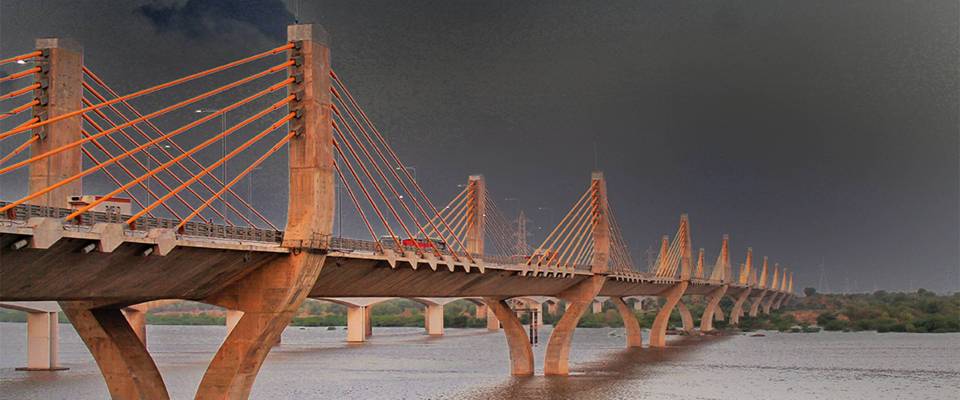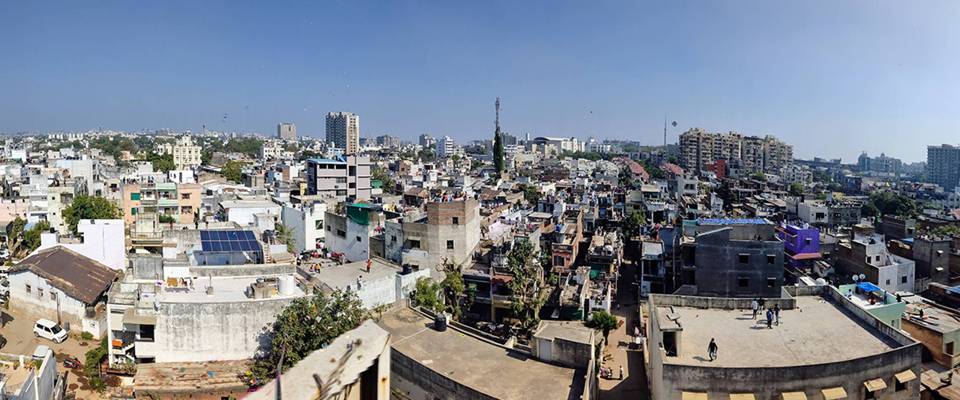
Grand Gujarat
11N/12DAhmedabad (1N) - Bajana (1N) - Bhuj (1N) - Jamnagar (1N) - Dwarka (2N) - Somnath (1N) - Gir (2N) - Kevadia (2N)
Within Gujarat there are historic forts, palaces, mosques, temples, and places of historical importance in India's struggle for independence. Many of these palaces and forts have been converted into heritage hotels to keep tourists close to the history of Gujarat.
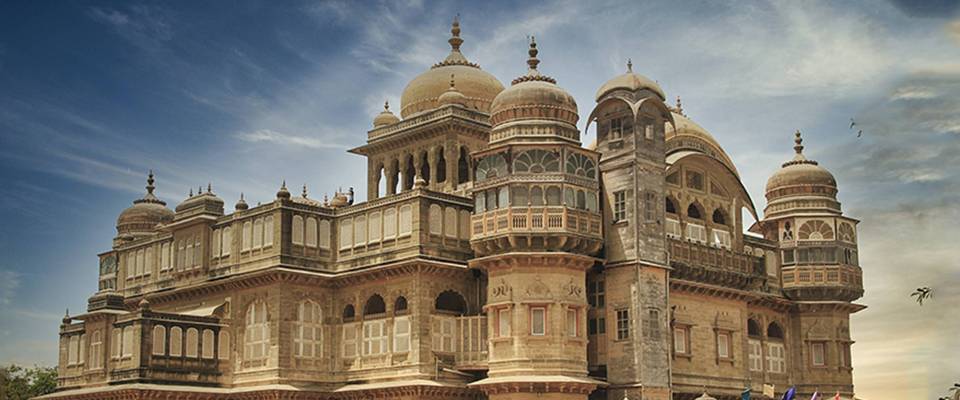
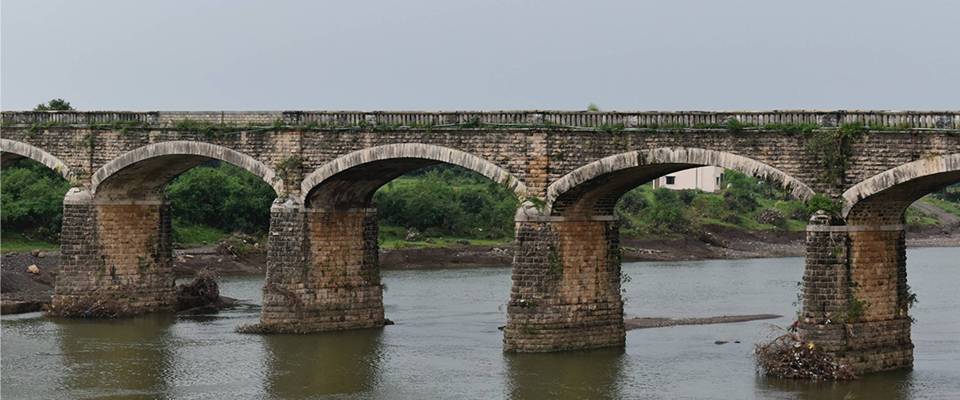
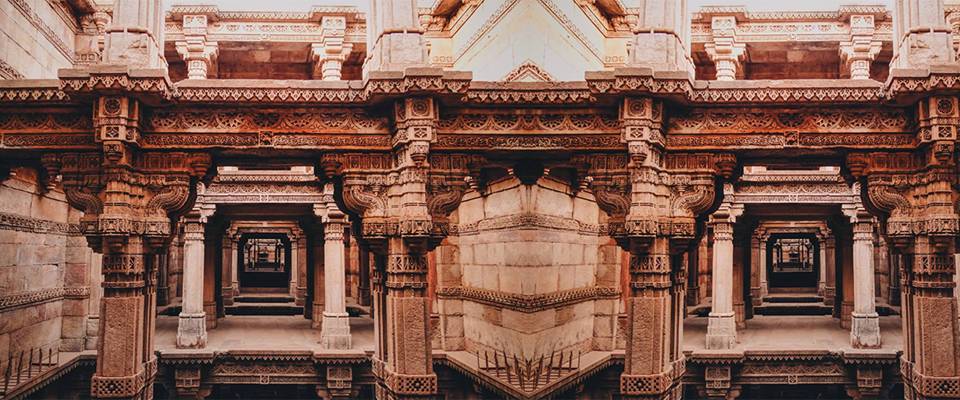
Day 1Day 2Day 3Day 4Day 5Day 6Day 7Day 8Day 9Day 10Day 11Day 12
AhmedabadAfter your arrival at Ahmedabad, you will be transferred to the Hotel to drop the luggage. Start your day with some sightseeing for this beautiful heritage city on the Coast of River Sabarmati. Visit Sidi Sayed mosque. Built in 1573, this entirely arcuated mosque is one of the most famous mosques of Ahmedabad. The mosque has ten screen windows (jails) on the side and rear arches. Proceed to visit the Hatheesing temple which was built outside of Delhi gate in Ahmedabad in 1850 by a rich Jain merchant called Sheth Hatheesing. Visit the highlight of the day - Gandhi Ashram. The beautiful ashram complex is one of the foremost tourist attractions of Ahmedabad. This ashram was Gandhi’s headquarters during the long struggle for Indian independence.
Later drive to Adalaj and visit the step well which is an architectural wonder built by Queen Rudabai and is certainly one of the finest monuments of Gujarat. The ‘Vav’ or stepped wells of Gujarat were used as meeting and resting places during summer since their cool interiors offered unbelievable respite from the scorching sun outside. During summer, people warmed themselves on the spacious sunny corridors while wide verandas offered shelter during the rains. Visit Akshardham Temple (Closed on Monday). Situated in the capital city of Gandhinagar, this magnificent temple is dedicated to Lord Swaminarayan. It was constructed on the directions of Pramukh Swami Maharaj, the spiritual leader of BAPS Sanstha. It has a sprawling 23 acre area and is chiseled out in pink sandstone. Overnight stay at Ahmedabad (Dinner)
Note – Tourists coming down from other cities on their own have to reach Ahmedabad latest by 11:30 hrs and the Vehicle leaves from the parking point at 12:00 hrs.
Ahmedabad – Patan – Modhera – Little Rann of KutchIn the morning after a delicious breakfast, proceed to Patan - Rani ki Vav (Step well). It was built by Queen Udaymati - the wife of Bhimdev during the 11-12th Century. It was one of the largest and the most sumptuous structure of its type and now listed in the UNESCO world heritage. Later, visit the Patan Patola House of weaving. Patan is famous for patola weaving and the Salvi family is one of those who continued this traditional art and has preserved it even today. Patola silk is often termed as the queen of all silk. The weaver makes the special patola loom and colouring from indigenous natural materials. Patola from Patan glorifies the heritage with its unique gem like qualities, gorgeous colours, designing and durability.
Visit the Modhera Sun Temple which dates back to early 11th century CE and was built by King Bhimdev I. The temple at Modhera is the most important of all sun temples built in the whole of Gujarat. The temple is dedicated to the Sun God. The temple is magnificent and the finest example of Hindu architecture in Gujarat. One of the most striking features of the Modhera Sun Temple is that the first ray of the sun falls on the deity at the time of the equinoxes. In front of the temple is a colossal tank, which was once known as Surya Kund or Rama Kund. The tank has a series of carved steps leading to the bottom. Later, proceed towards Little Rann of Kutch. Overnight stay at Bajana (Breakfast and Dinner).
Little Rann of Kutch – Dhoro (Rann of Kutch) – BhujEnjoy a morning safari at Little Rann Of Kutch viewing some of the rarest wild asses. Wild Ass Sanctuary is well known for its group of the stale joke brown Asiatic (Wild ass) which does not live anywhere else in Indian lowlands. We can see the blackbuck (Indian antelope), nilgai or blue bull (India’s largest antelope) and the graceful chinkara (Indian gazelle) along with other mammals at Little Rann of Kutch. The main carnivores of the Little Rann of Kutch are the endangered Indian wolf, desert fox, Indian fox, jackals, desert and jungle cats, and a few hyenas. During the visit, we can also see flamingoes, pelicans, ducks, cranes and storks.
Visit Banni Village, en route take permit (Please note: all clients need to obtain the permit) to see various people like Jat, Harijan, Meghawal and Mutva etc in various villages like Hodka, Ludiya and Dhordo. In Banni, the Meghwal-Harijans who migrated from Rajasthan use Khambira, Kharek, Kudi Stiches in their embroidery. They make wall hangings, waistcoats and pouches in Kharek Stich and do 'Moti Bharat' or beadwork on handheld fans, bracelets, toys and belts. After that, visit Hodka Village – Hodka comes from the Gujarati word ‘Hodi’ which means ‘boat’. The villages here are called jheels where potable water is available.
Both men and women are actively involved in developing the art and craft tradition of the region. Visit Ludiya village – the Harijans and Muslims are main communities in this village. Their main occupations are monsoon farming, cattle rearing, intricate wood carving, intricate embroidery work, mud-work and wall painting for decorating homes. Harijan men are involved with wood carving, the women take up embroidery and wall decoration. Visit Dhordo to see beautiful traditional mud houses (Bhungas) with mirror work and its fine Mutwa embroidery with tiny mirrors. Later, visit Kalo Dungar and White Rann.
Continue your drive to Bhuj. Overnight stay at Bhuj. (Breakfast and Dinner)
Bhuj – JamnagarVisit the temple of the most prominent Datei of Kutch at Maa Ashapura Temple in the old town quarters of Bhuj. Later, proceed to Jamnagar. En route, you will pass by a small city of Morbi which is world famous for several industries manufacturing Ceramics. Once in Jamnagar, visit Bala Hanuman Temple - a Pilgrim place venerated by the devotees of Lord Ram. It is a world famous temple, known for the continuous chanting of Jai Ram, Shri Ram. The chanting is going on since 1964 and has found a place for it in the Guinness Book of World Records. People chant the name of the Lord in shifts, 24 hours a day. See the famous Nakhuta Lake and the promenade along this famous lake of Jamnagar.
Overnight stay at Jamnagar. (Breakfast and Dinner)
Jamnagar – DwarkaThis morning after a filling breakfast, proceed to Dwarka. Visit Lord Dwarkadhish Temple and Bhadkeshwar Mahadev Temple. Attend the evening Aarti at Dwarkadhish temple. Overnight stay at Dwarka. (Breakfast and Dinner)
DwarkaAttend the morning Aarti Darshan at Dwarkadhish Temple, Bet Dwarka, Nageshwar Jyotirling and Rukmani Temple. Bet Dwarka – also known as Bet Shankhoddar, it is only 5 kms from Okha Junction by sea and Okha is 30 kms from Dwarka. It is said to be the place where Lord Krishna lived with his family when they ruled at Dwarka. It is also the place where Vishnu slew the demon Shankhasura. Visitors make it a point to visit the Krishna temple at this site which holds high interest to be seen and experienced. Visit the Nageswar Mahadev Temple – The Puranas mention 12 Jyotirlingas or columns of light representing Lord Shiva, who manifested himself in that form in different parts of India. This Shiva shrine near Dwarka is one of these and is therefore accorded great respect. Visit Rukmani Temple – the temple of Lord Krihsna’s wife. Overnight stay at Dwarka. (Breakfast and Dinner)
Dwarka – Porbandar – SomnathIn the morning after a satisfying breakfast, proceed to Porbandar. Visit Kirti temple which is known to be the house and birth place of Mahatma Gandhi. Also visit the Gandhi museum, the study room of Mahatma Gandhi in the Kirti temple. Later, visit the Sudama temple and continue to Somnath. In the evening, enjoy the Aarti Darshan at Somnath Temple - a Lord Shiva temple known as Jyotirling built by the Moon God. Enjoy a light and sound show. Overnight stay at Somnath. (Breakfast and Dinner)
Somnath – SasangirPost breakfast today, drive to the Sasan Gir Lion sanctuary. It is the home of around 300 Asiatic Lions. Sasan Gir is the only place in the world outside of the African continent where the lion can be seen in its natural habitat. Today post lunch, visit the Interpretation center for the wild animals of Gir. To reduce the disturbance from tourism in the main sanctuary area and to facilitate tourists to understand the importance of Gir and its wildlife, an interpretation zone has been created at Devalia. This comprises of a chain-link fenced area which is ‘Gir in a nutshell’, covering all habitat types and all major representatives of wildlife of Gir. The area has a good quantity of prey base in the form of Spotted Deers, Blue Bulls, Wild Boars, Blackbucks, Sambars and Chinkaras. Spotting a Lion in its savanna habitat is a treat to the eyes. A good variety of grassland, as well as forest avifauna is also spotted in the area. Overnight stay at Sasangir (Breakfast, Lunch & Dinner).
SasangirEnjoy your Morning/Evening (as per availability) at Gir Wild life Sanctuary in a Jeep Safari. Gir is the last refuge of Asiatic lions in India and the lion population residing in the park is a little over 300. The whole coverage area of Gir Sanctuary is about 1,450 sq kms. Gir is not just about Lions because the second most commonly found predator in Gir is the Leopard. In fact, Gir national park is also home to one of the largest Leopard populations in any park in India. Especially in the hotter season, they can sometimes be seen at night close to the lodges. The animal residents of Gir National Park are Sambar Deer, Chital Spotted Deer, Nilgai Antelope, Chowsingha Four-Horned Antelope, Chinkara Gazelle, Wild Boar, Langur Monkey, Jackal, Hyena and numerous birds like Paradise Flycatcher, Bonneli Eagle, Crested Serpent Eagle, Woodpeckers Flamingo etc. About 10,000 years ago, lions spanned vast sections of the globe but as the human population started to increase, trees were cut and forests were cleared to make more land for people to live in. Now lions are only in small fractions in some parts of the world and Asiatic lions, a subspecies that split from African lions perhaps 100,000 years ago, are only found in the Gir wildlife Sanctuary.
Overnight stay at Sasangir. (Breakfast, Lunch & Dinner)
Sasangir – Kevadia (Statue of Unity, Monday Closed)In the morning after breakfast, proceed to Kevadia. Overnight stay at Kevadia. (Breakfast and Dinner)
KevadiaThis morning after a delectable breakfast, visit The Statue of Unity which is a colossal statue of Indian statesman and independence activist Vallabhbhai Patel (1875–1950), who was the first deputy prime minister and home minister of independent India and an adherent of Mahatma Gandhi during the nonviolent Indian independence movement. Patel was highly respected for his leadership in uniting 562 princely states of India with a major part of the former British Raj to form the single Union of India. The Statue of Unity is the world's tallest statue, with a height of 182 metres (597 feet). It is located in the state of Gujarat on the Narmada River in the Kevadiya colony, facing the Sardar Sarovar Dam. The project was first announced in 2010, and the construction of the statue started in October 2013. It was designed by Indian sculptor Ram V. Sutar and was inaugurated by Indian Prime Minister Narendra Modi on 31 October 2018, the 143rd anniversary of Patel's birth. Overnight stay at Kevadia. (Breakfast and Dinner)
Kevadia – Ahmedabad departureThis morning after breakfast, proceed to Ahmedabad and transfer to the airport for your flight to your destination ahead.(Breakfast Only)
Note:
Tourists book there return flight latest by 16:00 hrs
Being a group tour package, the departures will be operated on meeting the minimum operating strength of 10 passengers. Otherwise, passengers will be given an option of shifting to another operating departure or continue on the same departure by paying the private vehicle supplement as applicable.
Overview
Gujarat, located in the western part of India, is a state with a rich cultural heritage, vibrant traditions, diverse landscapes, and a flourishing industrial and commercial sector. As the birthplace of Mahatma Gandhi, Gujarat holds significant historical and cultural importance. Gujarat has to offer Historical Sites, Gir Forest National Park, Rann of Kutch, Saputara, Gujarati Cuisine, Textile and Handicrafts, Navratri Festival, Somnath Temple, Ahmedabad, Kutchi Culture.
Policy
InclusionsExclusions
- Enjoy the Jeep Safari once during the tour

